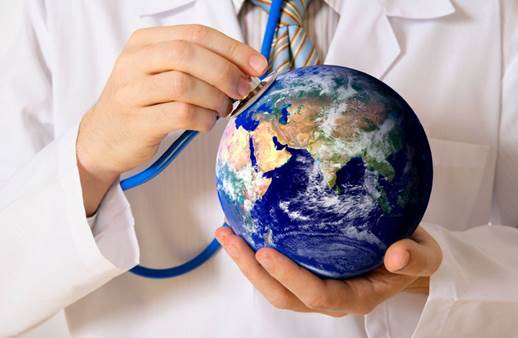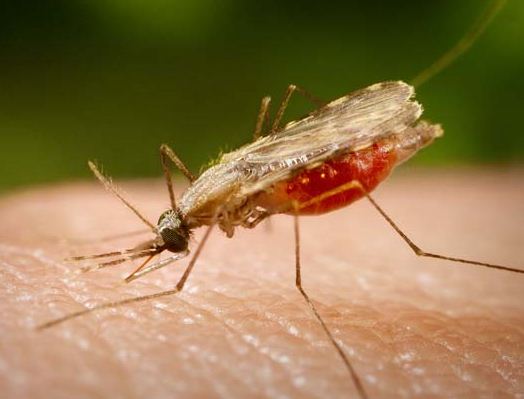Some vaccinations are recommended for your own health and
safety. Other vaccinations are compulsory and you will have difficulty crossing
some borders without correct documentation. For example, many countries in
Africa, South/Central America or the Caribbean will not accept travelers from
an area where there is yellow fever (a fatal viral disease transmitted by
mosquitoes) unless they can prove they have been vaccinated against it. Your
travel doctor will discuss your specific needs but the following information
may be helpful.
No matter where you are going, it’s recommended you ensure
all your childhood vaccinations – tetanus, diphtheria, measles, polio – are
up-to-date. All travelers should also consider influenza vaccination.
If you have chronic medical problems or you are aged 65 or
over, you may be advised to have a pneumonia vaccination. If you are travelling
to developing parts of the world or other high-risk areas, you will need to
consider having other jabs.
Common illnesses that travelers can pick up include those
that result from contaminated food or water.
Water-borne, food-borne, parasitic and other infectious
diseases including cholera, hepatitis, tuberculosis, typhoid and rabies are
common.

Common illnesses
that travelers can pick up include those that result from contaminated food or
water.
Depending on where you are travelling, you may be exposed to
serious insect-transmitted diseases such as malaria, Japanese encephalitis and
dengue fever, among others.
While vaccines and other medications can help reduce the
impact of these diseases, there are other things you can do to protect yourself
and minimize your risks.
Two infections you are likely to encounter in developing
regions are traveler’s diarrhea and malaria.
Traveler’s diarrhea
Changes of water, or climate, or a different diet, can play
havoc with your bowel habits. A little bit of constipation or a few rushed
trips to the toilet with no other symptoms are no cause for alarm.
Traveler’s diarrhea, however, is another thing. It typically
starts abruptly with watery stools, vomiting and cramping. Traveler’s diarrhea
is the most common illness to strike travelers and while it is rarely serious
or life-threatening, it can certainly make your trip unpleasant. It is usually
caused by eating or drinking food, water or ice that has been contaminated with
micro-organisms.
What you can do
Most cases of traveler’s diarrhea resolve within one to
three days without medical treatment.
The most important thing is to avoid becoming dehydrated.
Ensure you drink sufficient amounts of fluid to replace the fluids and salts
that you lose through bowel motions and vomiting. Your urine will indicate if
you need more fluid. If you have small amounts of concentrated urine, you need
to drink more. Keep drinking small amounts often. If you do not drink, you can
become very unwell quite quickly, especially in a hot climate. Stick to a bland
diet as you recover. You can use a rehydrating solution to replace lost
minerals and salts.

Most cases of
traveler’s diarrhea resolve within one to three days without medical treatment.
Most experts agree if you are going to areas where modern
medical care is not readily available, you should carry antibiotics and
anti-motility medications for self-treatment of traveler’s diarrhea.
Anti-motility medications don’t cure diarrhea but decrease
the frequency and urgency of needing to use the bathroom allowing more fluid to
be absorbed between bowel movements. Antibiotics can be taken at the onset of diarrhea
to reduce the number of days you have it.
Follow your doctor’s advice. The recommended use of an
anti-motility medication and antibiotics depends on a number of factors such as
your destination, age, allergies and whether you have any other medical
conditions or take any other medications which may preclude their use.
See a doctor if diarrhea doesn’t subside or you have a
fever, blood or mucus in your stools or signs of dehydration.
Malaria
Malaria is caused by an infection with a mosquito-borne
parasite that is able to infect red blood cells.
When an infected mosquito bites, the parasites travel to the
liver where they develop over a period of approximately a week before emerging
in the blood to cause symptoms.
Classic symptoms of malaria include fever and a flu-like
illness especially with chills, headache, muscle aches or abdominal pain.
Sometimes vomiting or diarrhea may occur. There may be anemia and jaundice
(yellowing of the skin and whites of the eyes). But symptoms can vary.

Malaria is caused
by an infection with a mosquito-borne parasite that is able to infect red blood
cells.
What you can do
If you are travelling to a malarial zone, you should be
taking appropriate medications. There are four drugs of choice. The medication
your travel doctor recommends will depend on many factors including the area
you visit, the risk of exposure to malaria-carrying mosquitoes, side effects of
medication and your medical history.
Anti-malarial medications do not prevent you from being
infected but they kill the malaria parasites during their developmental stage,
reducing your risk of becoming very ill.
Seek medical help immediately if malaria is suspected, as
without treatment the disease can rapidly become very serious or even fatal.
If you are travelling to isolated areas without access to
medical care, your travel doctor may recommend you carry a treatment dose of
medication for use if symptoms occur.